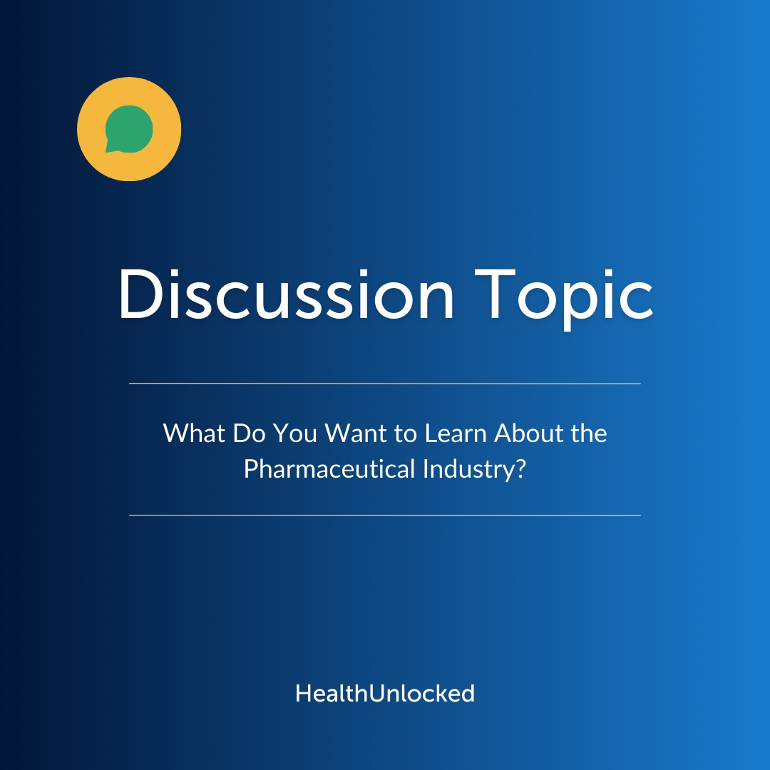Embarking on a journey into the pharmaceutical industry opens up endless possibilities. Whether you're drawn to drug discovery, regulatory processes, or ethical considerations in healthcare, there's a wealth of topics to explore.
Join our discussion to share your interests and aspirations for learning about the pharmaceutical industry. From clinical trial intricacies to market access strategies, all questions and curiosities are welcome.
The idea behind this discussion topic is to help you navigate through this complex landscape, tailoring our exploration together to meet the diverse interests of this research community, and help you gain a deeper understanding of the industry.
